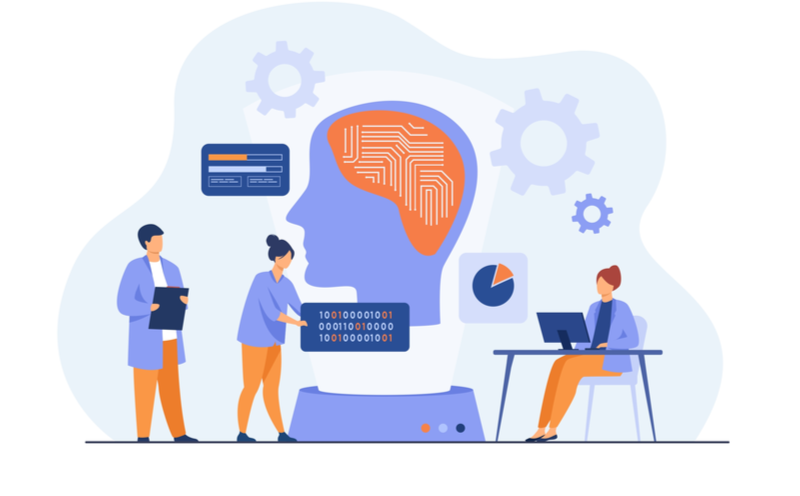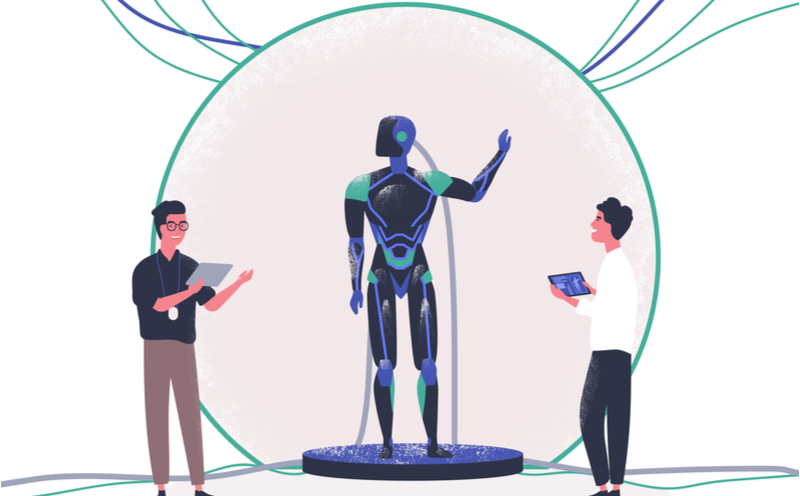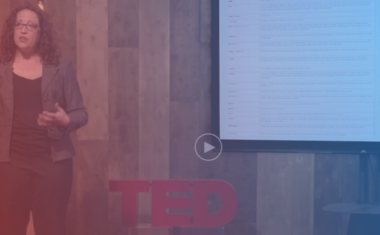Data Science Career Paths: Different Roles in the Industry

In this article

Besides being one of the most lucrative tech jobs, a job in data science also offers a range of different career paths. Especially as data scientists progress to more senior roles, their opportunities become numerous, and many senior data scientists are faced with the challenge of deciding where they want to specialize. Some data scientists want to become team leaders. Others want to specialize in a specific industry, like marketing. And others prefer to spend their time honing a specific skill, like machine learning.
With so many exciting possibilities, it can be hard to know how your career path fits into the data science landscape. Not to worry. We’re going to tell you all about different data science career paths, so that you know which one is right for you.
What Does a Data Scientist Do?

Before we tackle the wide range of data science career paths, let’s start with the basics. A data scientist mines data for valuable insights. Many companies (small and large) have access to very large volumes of data, with more data being produced every day. So data scientists build frameworks for analyzing this data, to see what business trends or patterns emerge.
Popular Data Science Career Paths
Depending on your interests, your data science journey can lead to many different paths. Let’s take a look at some different trajectories.
Data Scientist > Senior Data Scientist > Lead Data Scientist
This is a common career path for many data scientists. Often, there will be multiple lead data scientists at a company, each spearheading a different part of the data science process.
Data Scientist > Senior Data Scientist > Data Science Manager > Head of Data Science

As you progress on this journey, your role will largely remain the same, but you’ll be expected to take on more of a leadership position and guide the company’s efforts. So choose this path if you enjoy managing teams, and possibly want to serve as a mentor. As the head of data science, you’ll become the principal data scientist in the organization. This entails overseeing the data science teams, hiring for data science roles, and liaising with other senior stakeholders.
Data Scientist > Senior Data Scientist > Machine Learning Engineer
Machine learning—which is the use of algorithms and frameworks to automate parts of the data mining and analysis process—is an increasingly popular specialization for many senior data scientists. If you’re interested in following this path, check out an online machine learning bootcamp.
Get To Know Other Data Science Students
George Mendoza
Lead Solutions Manager at Hypergiant
Diana Xie
Machine Learning Engineer at IQVIA
Jonas Cuadrado
Senior Data Scientist at Feedzai
Data Scientist > Senior Data Scientist > Data Science Consultant
For those data scientists who would rather not work for a single company, becoming a data science consultant is a popular career path. Consultants often work on a freelance basis, offering their domain expertise to different clients. This is a job where you will constantly interact with different business stakeholders and work mostly independently to forecast business trends. It’s a good choice for someone who has good presentation skills, hands-on experience, and business acumen.
Data Scientist > Senior Data Scientist > Marketing or Product Manager
Data scientists, and the insights they uncover, are becoming integral to marketing decisions, particularly when it comes to studying consumer behavior, analyzing market patterns, and optimizing a marketing campaign. If this sounds appealing to you, then consider a career path as a marketing or product manager. It’s a great path for data scientists who enjoy studying marketing and how consumers interact with their company’s products.
About the Roles

Now that we’ve looked at some data science career paths, let’s look at some of the roles and responsibilities for each of those positions.
Data Scientist
As a data scientist, you will be asked to use your analytical skills and critical thinking to produce meaningful business insights. Data science professionals develop predictive models, perform data mining, and sometimes use neural networks and machine learning to automate some of their work.
Senior Data Scientist
As a senior data scientist, you’ll mentor and guide junior data science professionals on your team, and help your team mine data for insights using your mathematical and statistical underpinnings. A technical background is often required for this role, and can lead to a leadership position.
Data Science Manager
A data science manager oversees a data science team. The manager will guide the team and oversee their efforts to tackle specific business problems. A data science manager might also do some project management and take responsibility for the quality of the code being produced by their team.
Head of Data Science
The head of data science steers how a company uses data science. They’ll envision the company’s data science undertakings, and determine what kind of business problems can be solved using the data that is available. A company’s head of data science often has experience in both the business world and in data science.
Machine Learning Engineer

A machine learning engineer helps automate the data science process. They’ll also verify the quality of the data that has been sourced for a given project, choose data sources for new projects, research new machine learning algorithms, and implement machine learning systems that can identify patterns in complex data sets.
Data Science Consultant
A data science consultant does much of the same work as a senior data scientist, but on a consulting basis for different companies. They’re often contracted to study business operations and identify ways in which data can help solve some of the most challenging problems. A data science consultant needs to be adept at interacting with business leaders, and helping them make informed decisions using data.
Marketing or Product Manager
There is now a huge demand for marketing professionals who have hands-on experience in data science. This is because digital marketing campaigns create so much data, and someone needs to analyze it. A marketing or product manager will use this data to help enhance the performance of a marketing campaign.
How To Learn Data Science
Learn Programming With Python or R
Python and R are the two most popular programming languages in data science today. Some data scientists don’t code, but if you’re early in your data science journey, then it is highly recommended that you pick up skills in at least one of the two programming languages.
Build a Strong Foundation in Statistics and Mathematics

Everything that you do as a data scientist will involve some amount of statistics and other math. So make sure that you have a good grasp of probability, linear algebra, calculus, and statistics. These skills will also help if you want to work in more advanced areas like artificial intelligence or neural networks.
Learn Data Analysis
There are many different data analysis techniques that can be used to study the available data. Knowing which technique to use in a given circumstance is crucial to succeeding as a data scientist.
Gain Hands-On Expertise With Data Science Tools
Like every other discipline, data science has its own tools of the trade. For example, if you work in business analytics, then you might use Microsoft Power BI, a business intelligence tool. Tableau is an important tool for data scientists who need to create dashboards or visualizations. So being able to properly choose your tools, and knowing their requirements, is essential.
Work on Your Own Projects
One of the most effective ways to grow as a data scientist is to build your own data science projects. Doing so gives you the opportunity to apply your theoretical knowledge to real-world problems. It’s also a great way to create a portfolio of work that can help you land your first entry-level job.
Become a Data Storyteller
Data scientists have to translate their findings into presentations that can be understood by non-technical stakeholders. This means that you have to become effective at data storytelling, which often entails producing visualizations that summarize your work and justify your conclusions.
Since you’re here…Are you a future data scientist? Investigate with our free guide to what a data scientist actually does. When you’re ready to build a CV that will make hiring managers melt, join our Data Science Bootcamp that guarantees a job or your tuition back!





